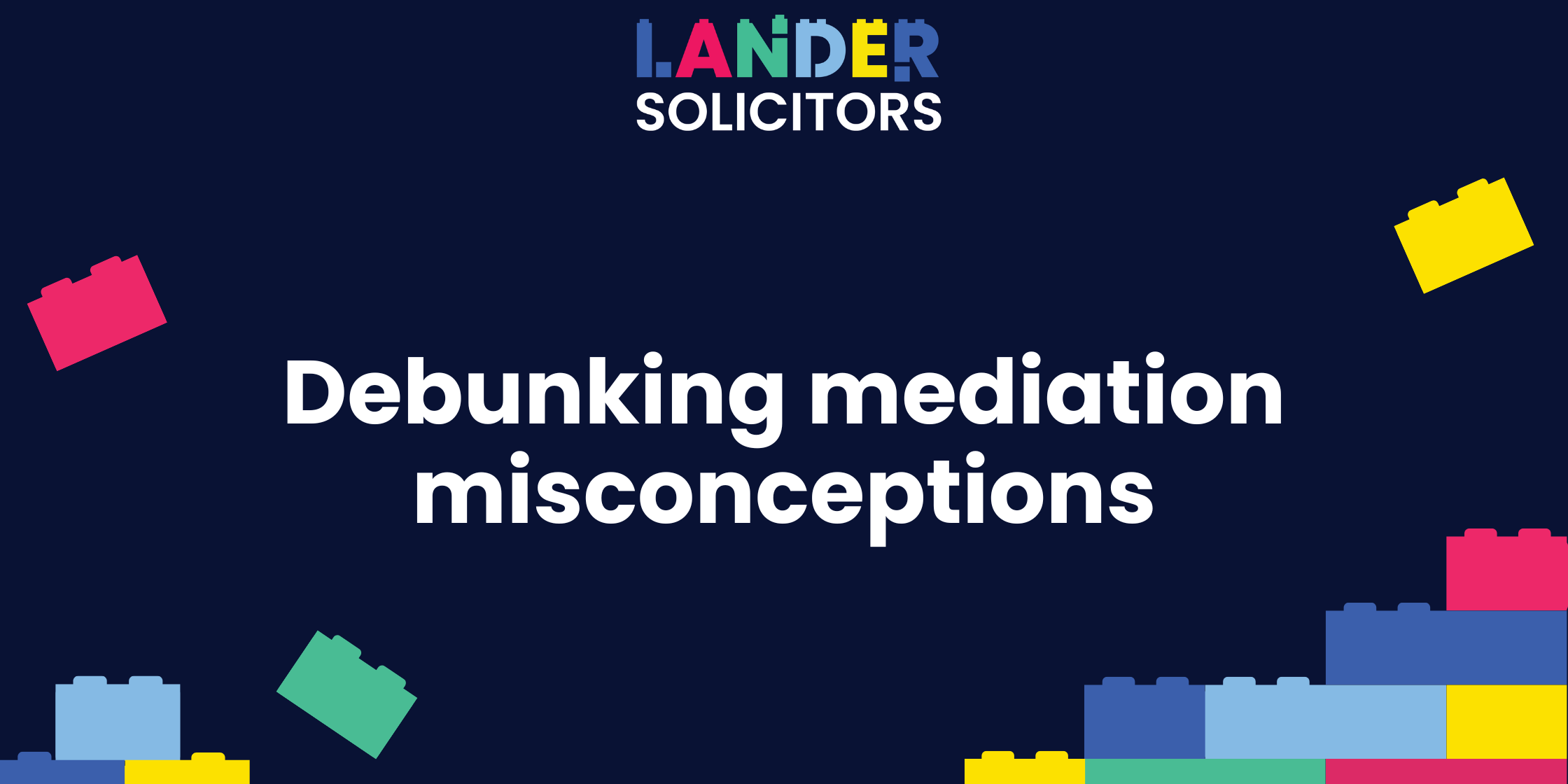Mediation for family law is a powerful tool that many overlook due to common misconceptions. What if resolving your family disputes could be less about conflict and more about collaboration? Mediation offers a path to achieve just that, yet myths about its effectiveness and fairness often overshadow its potential.
Let’s debunk some common myths about mediation for family law and mediation family dispute resolution.
Common misconceptions about mediation family dispute resolution
“Mediation isn’t legally binding, so it’s not worthwhile.”
While the mediation session itself isn’t legally binding, any agreement reached during mediation can be formalised into a legally binding agreement or court order. This provides security and clarity for all parties involved.
“Mediation isn’t effective.”
Mediation boasts a high success rate, especially when both parties are committed to finding a resolution. It provides a platform for open communication and creative problem-solving, often leading to mutually agreeable outcomes.
“Mediation is biased.”
A good mediator remains neutral, facilitating discussion and ensuring each party has an opportunity to be heard. Their role is to guide the conversation, not to take sides.
“Mediation is a waste of time if we don’t agree on anything.”
Even if a complete agreement isn’t reached, mediation can help clarify key issues, narrow the scope of the dispute, and pave the way for future negotiations or court proceedings. It can also improve communication between parties, which is especially valuable in co-parenting situations.
“Mediation is only for simple cases.”
Mediation can be effective in a wide range of family law disputes, including complex property settlements and sensitive parenting matters. The key is to have a skilled mediator who can navigate complex issues and facilitate productive discussions.
Signs of a good mediator (and red flags!)
Choosing the right mediator is crucial for a successful outcome. Here’s what to look for:
- Qualifications and Experience: Look for a mediator with formal training and experience in family law and dispute resolution. A Family Dispute Resolution Practitioner is a good choice.
- Neutrality: A good mediator should be impartial and unbiased, creating a safe space for both parties to express their views.
- Communication Skills: They should be an excellent communicator, able to actively listen, clarify issues, and facilitate constructive dialogue.
- Patience and Empathy: Family law disputes can be emotionally charged. A good mediator will be patient, empathetic, and able to manage conflict effectively.
Red flags to watch out for:
- Bias: A mediator who appears to favour one party over the other.
- Lack of Professionalism: Unprofessional conduct, such as being unprepared or dismissive.
- Poor Communication Skills: Difficulty explaining complex issues or managing the conversation effectively.
- Inability to Manage Conflict: Failure to de-escalate tensions or facilitate productive discussions.
Why choose Lander Solicitors Queensland for mediation?
At Lander Solicitors Queensland, we understand the emotional and financial toll that family law disputes can take. We believe in a better way to resolve these issues. One that is faster, more affordable, and focused on finding practical solutions that work for your family.
Our Family Dispute Resolution Practitioner, Andrew Lander, is highly qualified and experienced in family and domestic violence law. Learn more about Andrew here.
Ready to explore mediation?
Don’t let misconceptions prevent you from exploring the benefits of mediation. Contact Lander Solicitors Queensland today to schedule an intake session and discover how we can help you resolve your family law dispute effectively.
Let us help you find a better way forward, and contact us today.
DISCLAIMER – The information provided in this blog is general and does not consider your individual legal needs or objectives. It does not constitute personal advice and is for informational purposes only. We recommend seeking out professional and independent legal advice from qualified Australian lawyer to advise on your individual situation before acting on any information contained below. Lander Solicitors Queensland accepts no express or implied liability for negligence or contractually for reliance on any information provided. Liability limited by a scheme approved under Professional Standards Legislation.







